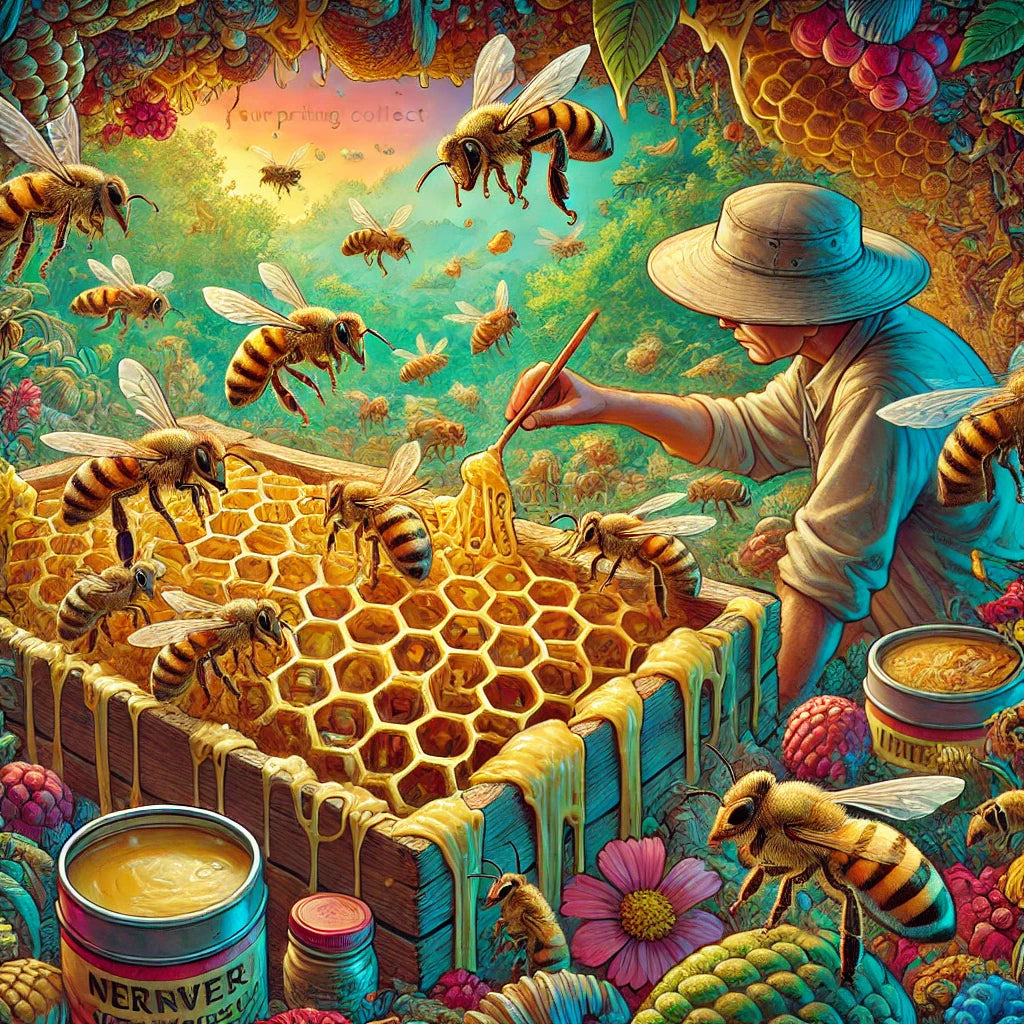Honey bees are nature’s master builders, using everything they collect to create a thriving hive. One of their most impressive creations is propolis, often referred to as "bee glue." This sticky substance is crucial for sealing gaps and protecting the hive from pests and diseases. But did you know there are certain things that bees almost never collect to make propolis? Despite their resourcefulness, bees have their preferences, and some materials just don’t make the cut.
Whether you're managing a honey bee swarm or simply curious about bee behavior, understanding what bees don’t collect can be as fascinating as knowing what they do. Let’s explore three surprising substances that bees almost never gather directly, yet play a vital role in their hive's health and survival.
1. Bee Bread: Made, Not Gathered
Bee bread is an essential food source for honey bees, but it’s not something they collect directly from nature. Instead, bees gather pollen and mix it with nectar and enzymes to create this nutrient-rich substance.
Bee bread is stored in the hive and used to feed larvae and adult bees. It’s a fascinating process that highlights the bees' incredible ability to transform raw materials into something entirely new. This process is crucial for the survival of the colony and showcases the benefits of bees to their ecosystem.
2. Stolen Honey: Rare but Possible
While bees don’t usually collect honey from the environment, there is an exception known as “robbing.” During times of scarcity, bees may invade another hive to steal honey that other bees have made.
However, this is not the norm and happens only in desperate situations. Typically, bees focus on collecting nectar, which they then process into honey within their own hive. This behavior is rare but serves as a reminder of the resourcefulness of bees when survival is at stake. Understanding such behaviors is vital when learning how to start a bee farm and managing hives.
3. Propolis: Crafted with Care
Propolis, often called “bee glue,” is another substance that bees do not collect directly. Instead, they gather plant resins from trees and other sources, bringing these sticky substances back to the hive. Once inside, bees mix the resin with wax and enzymes to create propolis, which they use to seal cracks and protect the hive from pests and infections.
This process is an excellent example of the bees’ ability to modify and enhance the materials they gather, ensuring their hive remains a safe and stable environment. Propolis plays a vital role in the life cycle of bees and the overall health of the colony.
Why Understanding These Behaviors Matters
Knowing what bees do and don’t collect is crucial for anyone involved in beekeeping. It helps beekeepers provide the right resources and manage their hives effectively. For example, ensuring that your bees have access to plenty of resin-producing plants can support healthy propolis production, while understanding the dynamics of robbing can help you protect your hives during times of scarcity. Whether you’re managing an Appalachian bee farm or simply interested in bees, this knowledge is invaluable.
Protect Your Hive Like a Pro with Swarm Commander
Honey bees are incredibly skilled at transforming raw materials into the essential substances they need for survival. While they don’t collect bee bread, honey, or propolis directly, their ability to create these substances is a testament to their ingenuity and adaptability. By understanding these processes, beekeepers and enthusiasts can better support their hives and appreciate the intricate work that goes into maintaining a healthy bee colony.
Your bees work hard to maintain a healthy, thriving hive, but they can only do so much on their own. Whether you’re managing a honey bee swarm or supporting an established colony, Swarm Commander has the tools you need to keep your bees safe and productive. From bee trap attractants to hive management solutions, Swarm Commander offers products that help your bees do what they do best—without the stress. Equip your hive today with Swarm Commander and give your bees the support they deserve.
Frequently Asked Questions About What Honey Bee Glue (Almost) Never Collects
Q1. What is bee bread, and how do bees make it?
Bee bread is a nutrient-rich food source made from pollen, nectar, and enzymes. Bees gather pollen, mix it with other substances, and store it in the hive to feed larvae and adult bees.
Q2. Do bees collect honey from the environment?
Bees typically do not collect honey directly from the environment. Instead, they collect nectar and process it into honey within their hive. However, in rare cases, bees may rob honey from other hives.
Q3. How is propolis made by bees?
Propolis, or bee glue, is made by bees who collect plant resins and mix them with wax and enzymes. This substance is used to seal and protect the hive from pests and infections.
Q4. Why don’t bees collect these substances directly?
Bees collect the raw materials needed to make these substances rather than the final product. This allows them to customize and enhance the materials to suit their hive’s needs.
Q5. How can beekeepers support these processes?
Beekeepers can support these processes by providing access to resin-producing plants for propolis, ensuring a diverse range of pollen sources for bee bread, and protecting hives from robbing during scarce times.



